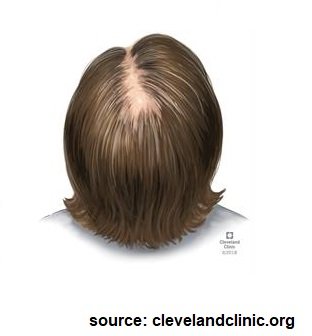Hair loss can affect any gender. Aren’t we aware of this? Hair loss affects everyone we meet, male and female, to some extent. Few people suffer more than others. Some people talk about it, and most do not. Some take the initiative, and others accept it.
Will you accept it, or should you fight it? If you are a Jaipur resident and want to have a treatment, you should avail a hair transplant in Jaipur. This area of medical treatment has advanced by leaps and bounds in recent decades.

Surgical hair regeneration is one of the most effective treatments for permanent hair loss. Hair transplant results in permanent natural hair regeneration in both men and women. A woman’s hair loss pattern, on the other hand, differs somewhat from that of males.
It is essential to understand this distinction to learn the alternatives available thoroughly. It is a situation that requires expert help, and you cannot resolve it by do-it-yourself methods.
As previously stated, the disorder is somewhat different in women, and the approach, medication, or cure will vary accordingly.
What makes hair loss in women different from hair loss in men?

Women’s hair loss may happen in several different ways. Male pattern thinning/baldness and female pattern thinning/baldness are the most common variations.
When it comes to male pattern baldness, the hair loss pattern is usually U-shaped. It begins with thinning from the crown or a receding hairline, then progresses to the head’s top.
Androgenetic Alopecia occurs in women with female pattern baldness, diffusing hair loss, or thinning in the frontal-vertex area. Even hair loss in women occurs slower than in men, and it usually happens much later in life. However, this is becoming more common among young teenage girls these days. Age has become irrelevant in any situation.
It does not make hair loss any less painful for a woman, particularly if you had long, luscious hair previously.
Are women the right candidate for a hair transplant?
It is the main topic of discussion today. And now for the answer.
Yes, really. If the hair and scalp complications lead to hair loss in women, they may consider a female hair transplant treatment. It is not a choice for male-only. If you are looking for the best hair transplant treatment cost in Jaipur, you should book an appointment with us.
The percentage of women who have their hair transplanted is lower than that of men. As previously said, it depends on the general disparity in the pattern of hair loss that women have.
The treatment’s success depends on the kind of hair loss you have and the state of your hair and scalp. A hair transplant specialist is the best person to determine whether a hair transplant is a suitable choice for you. Yet, we still suggest that the hair transplant is the most effective treatment to remove hair loss permanently.
A successful candidate must have plenty of healthy hair follicles in the donor region that can be transplanted. Eventually, these healthy hair follicles can develop into long and beautiful hair as you always wanted.
Women suffering from female pattern baldness and traction alopecia will find hair transplants to be an excellent solution to their problem. Many females who have suffered scalp trauma choose hair transplantation surgery.
There is a general belief that hair transplants are only available to men. It is not the case. Women are also affected by hair loss and balding. Hair transplants are an excellent way to permanently return hair to someone who has experienced lifelong hair loss and thinning.
Women that have diffuse hair loss through their entire scalp would not be suitable candidates for a transplant. However, to combat diffuse hair loss, a variety of options and treatments are available other than hair transplant surgery.
Women who experience reversible hair loss due to hereditary predisposition, health issues such as PCOS, Thyroid disorders, or pregnancy should avail appropriate hair therapies. Having a proper consultation with an experienced hair transplant surgeon will make a huge difference. You will require a certified physician to identify the root cause correctly. So, visit us as early as possible.

